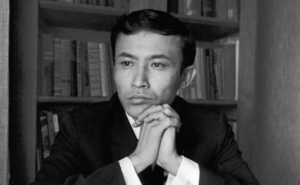Urgent Need for Comprehensive National Reforms

In Pakistan, we keep hearing and reading about necessity and urgency of ‘reforms’. Such rhetoric are very common for last many decades but nothing much has been done in practice. There is no denial to the fact that Pakistan needs comprehensive reforms in its governance system, style and philosophy.
Let me share with our readers as what is meant by reforms and why reforms are essential to keep dynamism in functioning of a state. The word ‘reform / re-form’ is derived from Latin, via old French, ‘reformāre’, which means ‘to form again’.
In its contemporary uses, reform means following:
1) to make changes in an institution or practice, in order to improve it.
2) to make an improvement, especially by changing a person’s behaviour or the structure of something.
3) to amend or improve by removal of faults or abuses.
4) to put an end to an evil practice by enforcing or introducing a better method or course of action.
5) to amendment / correct what is defective, vicious, corrupt, or depraved, debouched, immoral, licentious, degenerated, deteriorated, declined, decadent.
6) removal or correction of errors, mistakes, faults, blunders, inaccuracies, insufficiencies, deficiencies and wrong doings.
Reforms can be undertaken by individuals, institutions, societies and nations. First step towards ‘reform’, reformation’ or ‘improvement’ is the ‘realization’ of individual or/and collective deficiencies and mistakes that need to be rectified.
Such realization comes through awareness and consciousness at individual and collective levels. The biggest impediments in realization and awareness are attitude of denial, delusions, misperceptions, biases, prejudices, and bigotry.
Since no society or nation is immune to degeneration and deterioration, it is moral responsibility of all social, political and religious scholars, intellectuals, and leaders, who can influence the public opinion, to continuously keep evaluating their societies, with a view to suggesting required changes and improvements. When such improvements are carried out in an organized, institutional and progressive manners, these are called reforms.
Most reforms are generally undertaken in slow and steady manner, as the process involves identification and evaluation of problems, critical analyses, planning, legislation, implementation and mid-course correction, if necessary.
However, due to urgency of reforms, in order to arrest fast deteriorating conditions in governments or business / commercial sectors, radical and fast pace reforms become a compulsion. Under such situations, crises management strategies are adopted to restore the normalcy through emergency measures.
In that case, some new methods, processes and procedures are adopted to avoid undue delays and hurdles which are characteristic tools of status quo forces. Undertaking reforms is never an easy process because changes brought through reforms impinge upon the interests of various powerful segments of the society. Such elements and groups always resist, to the last, in order to protect their social, political and economic privileges that accord them advantageous positions in the society.
The ruling class becomes so addicted to these privileges that it considers such benefits as their inherent and birth right. Therefore, in many societies ‘reforms’ turn into a ‘protracted class struggle’ which occasionally leads to revolutions. Successful revolutions bring new hope and prosperity, whereas such failure leads to further chaos and anarchy.
Hence, in order to maintain egalitarian and progressive character of a society, ‘reforms’ must been undertaken periodically in a systemic and an organized manner. Otherwise the society may explode under the burden of inequality, suppression, oppression, exploitation, and injustice.
In Pakistan, public, at large, that has been highly abused by excessive coercion of governments and powerful segments of society, is crying for change and reforms. We are witnessing strong undercurrents of socio-political awareness and defiance that may lead to rebellious destruction if legitimate opportunities and rightful possibilities of respectful living continue to be denied to oppressed people.
Therefore, it is in the interest of the state and society that required reforms should be undertaken immediately. In the past, some measures were taken under Field Marshal Muhammad Ayub’s and Zulfiqar Ali Bhutto’s respective eras that were termed as ‘reforms’. Unfortunately, these ‘reforms’ were not implemented properly and nothing much was done thereafter as well.
Pakistan needs comprehensive reforms in all spheres of public and collective lives, not restricted to but covering: system and philosophy of governance; education; public health and social welfare; economic system, including taxation and revenue collection and utilization; electoral system, democratization of political parties by making these more representative and less monarchical; provision of easily accessible and speedy justice; creation of more administrative units (provinces); improving civil service, police, and law enforcing agencies; security sector reforms by developing workable mechanism to eliminate political interference by and politicization of national security institutions.
Similarly, few other important areas are land and revenue, provincial services, local body institutions, electoral system, reducing social, and economic disparity and in-equilibrium among provinces. In fact, the list is unending. We need to prioritize and move with flashing speed. A lot can be learned from Chinese experience and other developing countries who have changed the fate of their citizens in last few decades.
It is suggested that a totally apolitical ‘National Reform Commission (NRC)’ comprising genuine representation of all segments of the society, not limited to but, including civil society, political parties, parliamentarians, higher judiciary, national security institutions, bureaucracy, diplomats, professionals (doctors, engineers, scientists, and academicians), intelligentsia, social scientists, journalist, and commerce and trade chambers members, should be established immediately.
It must be reinforced with robust legal cover through urgent legislation by the parliament, supported by all political players / stake holders and inalienable protection granted by the Supreme Court. The Commission should be initially formed for five years and may be extended for another term by the Supreme Court to eliminate any political delay, hindrance or sabotage.
The mandated of the Commission should be developed by a select sub- committee of the Commission within fifteen days of its constitution. The Commission may constitute sub-committees for specific and specified purposes.
The Commission must develop synopsis of urgent reforms within one month, which should be presented to Joint Session of the Parliament and approved with one week after due deliberations.
The proposed NRC should have full authority for ensuring implementation of recommended reforms. Its work should directly supervised by National Reform Implementation Committee that maybe jointly headed by the President and the Prime Minister, with assistance of Chairman Senate, Speaker National Assembly, Leaders of Opposition in Senate and National Assembly, the Chief Justice of Supreme Court, and Chairman Joint Chief of Staff Committee.
The progress of the NRC should be presented to the Joint Session of the Parliament after every six months. It is expected that through correct decisions for national reforms and resolute implementation through constitutionally developed arrangement, Pakistan will get out of existential threat.
National reforms are the only way to political stability, economic revival, social unity and solidarity, societal progress and prosperity, and transformation from stagnant, repressive, tyrannical and rotten society to a progressive, enlightened, egalitarian society, and democratic state, which would provide hope to all citizens to live a harmonious life with respect, equality, and dignity.
Courtesy Minute Mirror, Lahore, Pakistan.


